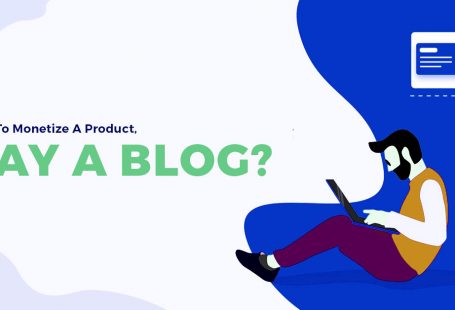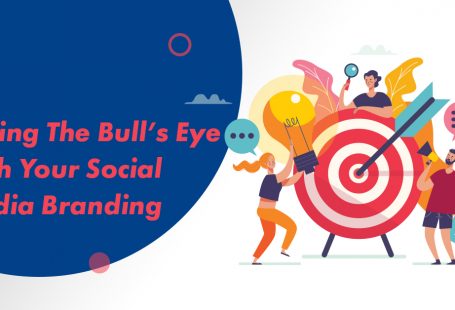While concluding your day, can you recollect the brands you have been exposed to throughout? Somewhere in our subconscious mind, we think every day that we came across a new name and a new concept for an already existing thing while surfing the web.
Today, when we are dependent on the web for most of our needs, be it shopping or learning, companies leave no stone unturned to reach the maximum target audience. There is a cut-throat competition within various brands and products catering in the same segment in the era of digital advancement and mobility.
Hence marketing today has evolved and reached a new standard. With technological advancements, people are gradually shifting from traditional mediums to new and advanced solutions. It requires brands to re-work their branding strategies and make them more reactive towards technology.
Digital marketing is one such amazing form of marketing that can prove to be a game-changer for any company. It is an exhaustive combination of various tools and concepts of marketing. PPC is one of the most beneficial types of advertising under digital marketing.
Undoubtedly, PPC is a fantastic way to get traffic to your websites and get quality leads.
As startups are fixed on a budget, PPC helps them enhance their reach and establish a recall among their target groups.
So let’s discuss how to create a marketing campaign with PPC in detail.
Decoding PPC Ads
PPC is a type of advertising which falls under digital marketing. Here, the owner of a website pays a third party for publishing their ads online on their digital platform in return to the traffic that is led to the advertised website.
While planning out an appropriate PPC campaign, it is essential to keep in mind that bidding should be done on the relevant keywords, and ads should be made visible in the region of services provided.
If implemented with proper planning, PPC can win your business solution great profits.
PPC automation has got a fantastic evolution in digital marketing. It is a process where vast amounts of data work together to identify your campaign’s best possible audience.
It saves startups a significant amount of money by targeting audiences who are more likely to buy their product/services.
For example, with increasing use of home internet devices, Google collects a massive amount of data, using artificial intelligence and uses it to personalize ads as per your preference.
Google uses the collected information for the creation of an automation system. With such a process, Google provides advertisers with a highly targeted audience, which means one can give its advertising message to the correct audience at the wanted time. Next time while baking in your kitchen, and listening to songs on Alexa, don’t get surprised to hear an ad of a baking class.
PPC for The Startups

A growing startup faces various challenges while chalking out, maintaining, and executing a plan for a PPC campaign. It is essential to rule any challenges beforehand for achieving good traffic and an effective campaign.
Reports of essential PPC metrics are necessary to manage and measure the effectiveness of the campaign. It takes immense effort and time to create and maintain these reports. For making it easy, there are some tools available to automatically help you manage, schedule, and filter your messages.
Often startups face challenges related to bid management and optimization. You may need to use different platforms for managing both leads and bids. There are numerous tools available to manage requests and optimize the content that offers flexibility in automating vertical business rules.
Manually managing inventory related to PPC advertising gets very difficult. For doing so, it requires you to be constantly aware of your inventory in real-time. In the case of out-of-stock items, you should pause their ads until they are available again. For effectively managing it, you can use tools which make this process convenient and faster.
Startups and PPC: Essential Points To Remember

It is evident that framing an appropriate PPC plan for startups takes a lot of effort and time; hence, keeping a few essential points in mind is right.
- Advantages of Paid Search for a Startup: PPC offers amazing benefits for startups. It makes advertising campaigns highly targeted and generates results faster. For PPC, you are only required to pay for the clicks; it is predictable and has a good tracking ability.
- Planning Your Budget and Goals: While planning budgets and goals for PPC goals, avoid fixing actual numbers; as goals get affected by a budget. It can either help you or, if not appropriately prepared, prove a total waste of money.
- Researching and Planning PPC Goals: It’s good to set up highly targeted goals in case of a low budget. Some specific goals you can set are lead generation, brand awareness, and ROI centred customer acquisition in terms of numbers and time.
- Determining The Amount of Traffic: After setting up PPC goals, determine the amount of traffic you needed to reach your destination within a prescribed time frame. Google Analytics is a fantastic tool that can help you manage the same.
- Cost of PPC Advertisement: Research the cost of PPC advertisements, before finalizing the bids. Various PPC networks are available at different prices. By doing so, you can select the appropriate ones with minimum fees.
- Set Defined Conversion Goals: These goals define the measurement of users’ specific actions on your website. Setting up defined conversion goals for a website should include the following, submitting the form, link click or button click, completing a purchase, or viewing a particular page.
- Selecting Relevant PPC Platforms for Promotions: Several companies offer PPC advertisements. It is suitable for a growing startup to invest in a good PPC management company for getting customized services about the business solution. The best companies providing PPC advertisements are Google ads, Facebook ads, Bing ads, Bidavertiser, and AdRoll.
Steps for Creating A Dynamic PPC Campaign

As mentioned above, a PPC campaign is an effective marketing strategy for any startup to increase its reach. Here are a few curated steps of framing a dynamic PPC campaign.
- Commence With Research: For increasing the effectiveness of any campaign, it is good to do some research before launching it. For example, if you have previously run a paid campaign, it is still good to read about paid search platforms as they undergo various updates.
- Creating A Budget: It is mentioned above that one should consider a few factors before finalizing a budget. It is precisely one of the most significant parts of creating a PPC campaign. Don’t keep your budget on extreme ends, be it lower or higher, as it will not bring good results. Investigate all the paid platforms correctly to know, which one suits the preferences of your target audience. Additionally, it will also help you to see the pay per click.
- Launching Your PPC Campaign: On having a budget and knowing the type of campaign, you can successfully launch your campaign. If you have prior knowledge about your buyer persona, you can leverage to write highly effective companies. You need to create ad groups. It is where many people go overboard. First, try to have only two or three ad groups before having a wide variety of products. Ad groups should be broken in reference to themes, products or services. It is suitable for ads to reflect the themes of the ad groups as well as the keywords. Responsive ads are a fantastic way to test many different images or messages to see what’s effective.
- Monitoring Results: You may not just sit and relax after launching your campaign. The launched PPC campaign needs constant monitoring for achieving effective results. Doing so will let you know the real insights of the campaign. Here you should build reports to showcase your stakeholders the campaign’s effectiveness and gain actionable insights for tweaking the campaign if required. At the beginning of the campaign, you should monitor it regularly for making sure that the budget is pacing correctly.
- Optimize: Use the data collected while monitoring to optimize the campaign if needed. It can be used to refine your ads and keywords. But it is advisable to let the campaign run for at least six to eight weeks before making any change, as it takes some time to gather data. Finally, on having the appropriate insights, the information can improve the campaign and make it more effective. Eventually, a PPC marketing campaign should also contain future steps for the next campaign. Moreover, with paid search’s immediate results, you can quickly scale, add or change campaigns.
Conclusion
Digital marketing has emerged to be an amazing tool for elevating the success of any startup. For a startup to enhance its reach, PPC under digital marketing helps advertise it amongst relevant target audiences.
PPC being a channel of digital marketing and a model of advertising works fantastically to provide cost-effective solutions. Companies save themselves precious time for concentrating better on project strategies and campaign management. For taking the best of PPC benefits and its related trends, one needs to set its business goals right. It enables Google to learn better about the target group and help the campaign reach a more stratified target group.
Digital marketing is getting better every day. Brands are putting their best efforts to market themselves uniquely. Thus it is good to observe the ongoing trends and algorithms for planning a creative and strategic digital marketing campaign for highlighting any brand.
Conducting exhaustive market research before planning a campaign is very useful here. To maintain a pace and keep your brand ahead of competitors, you should intelligently use the strategies that are cost-effective and more responsive, PPC being an amazing channel of digital marketing, fosters numerous benefits for a startup to grow strategically and effectively.
So reading this blog, simply learn how to create a marketing campaign for a business.






